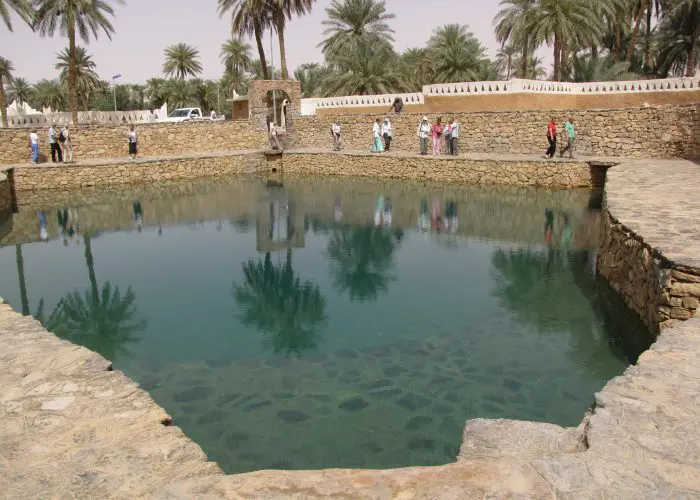100 thousands people in Libya risk losing access to water

On 24 July, a major leak had occurred in the water transmission line in Tazerbo, Benghazi located close to the city of Awjila, leading to a large volume of water to be wasted.
In the past two weeks alone, one of the wells of Al-Hasawna, Al-Juffra Water System in the western and southern field was destroyed and totally put out of service. The well has high daily production capacity of over 5000 cubic meters of water.
UNICEF deplores vandalising water systems which cut off children and their families from water, increasing the likelihood of water-borne diseases spreading in the affected areas.
As Libya’s stifling summer heat hits residents, amidst acute power cuts and Coronavirus pandemic spreading fast, continuous damage of the water system further jeopardizes levels of health and hygiene among the population and increases the risk of epidemics and spread of communicable diseases to already embattled Libyans.
“When access is cut off, children are often forced to rely on unsafe sources. This increases their risks of contracting diseases, especially in very young children,” said Cristina Brugiolo, UNICEF Deputy Special Representative to Libya. “Deliberate and indiscriminate damage of water and sanitation systems – and power supplies required for them to function – is a great violation of fundamental rights.” she added.
The Man-Made River is the largest water supplier in Libya and provides 60% of all freshwater used in Libya – the repeated assailants attacks on its main systems threatens the water security of the entire country and puts millions of lives at immediate risk of losing access to safe water.
UNICEF calls on national and international partners to make the pressing issue of protecting the water infrastructure a priority concern and step-up security measures including the potential deployment of civil forces at the wellfields. The urgent allocation of necessary resources to carry out maintenance will ensure continuity of adequate water supply and sanitation services.
UNICEF is working with its partners on water trucking to secure water supplies to the most affected and vulnerable population in hospitals, health facilities, detention centers and the internally displaced people camps. A UNICEF technical team is working with the General Company for Water and Wastewater to review urgent response options and identify alternative water sources.
How to submit an Op-Ed: Libyan Express accepts opinion articles on a wide range of topics. Submissions may be sent to oped@libyanexpress.com. Please include ‘Op-Ed’ in the subject line.
- AU pushes for lasting truce after Tripoli clashes - May 24, 2025
- Libyan entities dispute financial transfer allegations - May 24, 2025
- Amnesty demands release from Sudan’s Tripoli embassy - May 24, 2025


